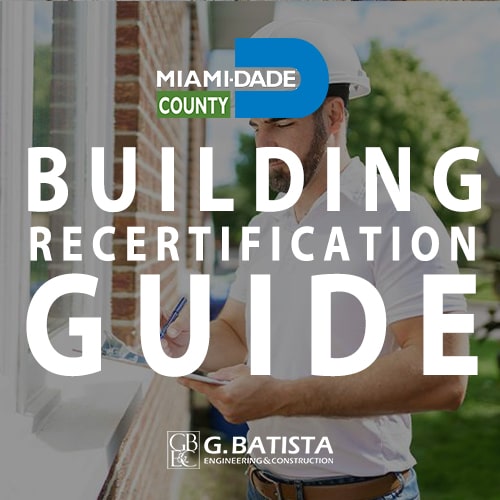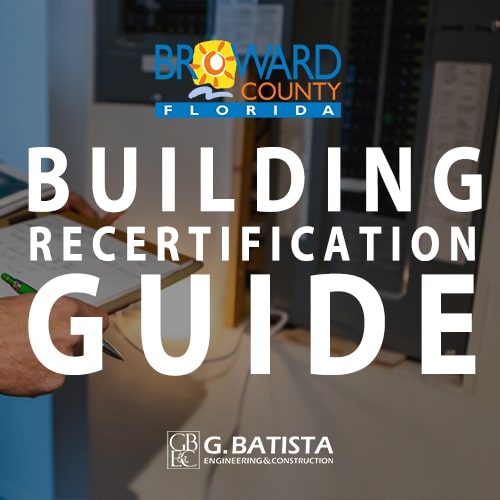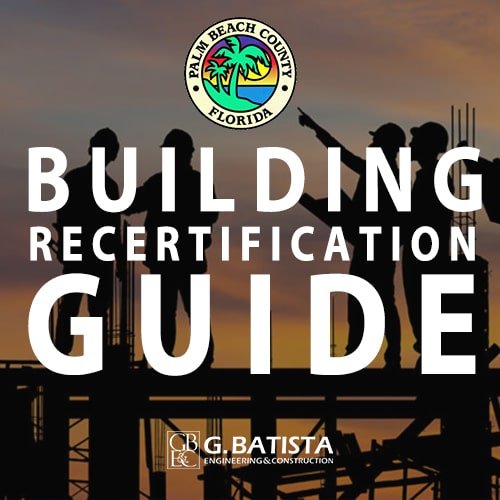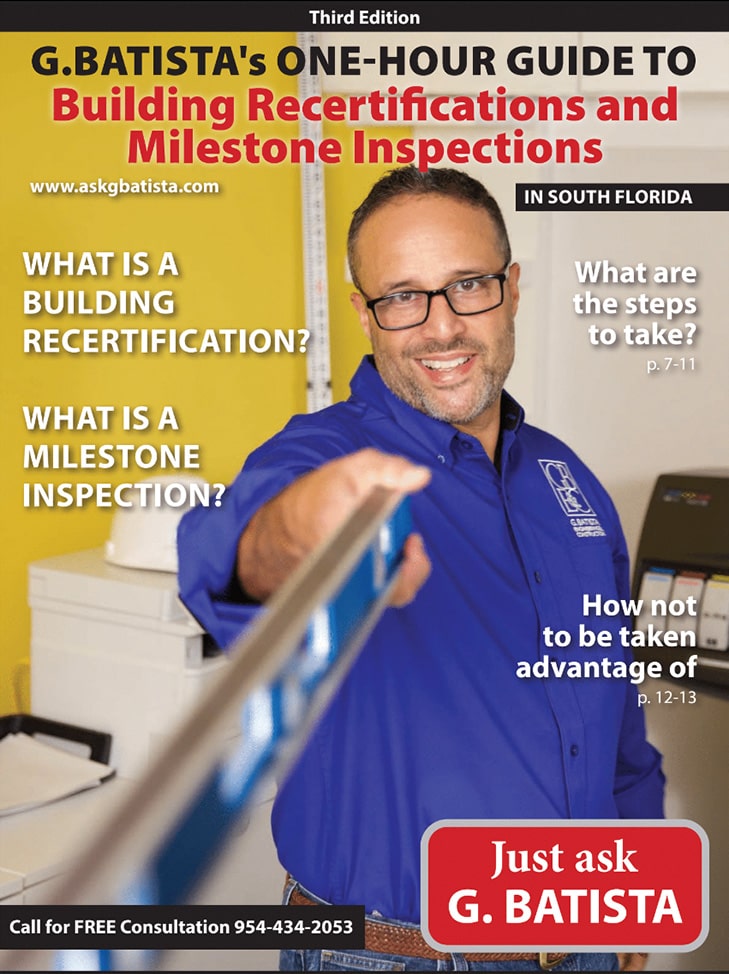
What are the new Florida condo laws in 2024?
Florida’s condominium market is renowned for its beautiful properties and diverse communities, but ensuring the safety and quality of these buildings is crucial for the safety of residents who reside in the building as well as the safety of the surrounding areas.
In response to growing concerns about building integrity and safety standards after the collapse of the Champlain Towers in Surfside, Florida has enacted new condominium laws aimed at strengthening building inspection requirements across the state.
This article will review the new laws found in the Florida Senate Bill 4D (SB 4-D), Florida Senate Bill 154 (SB 154), Florida Condominium Act (Chapter 718, Florida Statutes), Florida Cooperative Act (Chapter 719, Florida Statutes). These laws, while posing some challenges, are ultimately a public safety program that prioritizes the well-being and security of residents and visitors alike. These laws provide a legal framework governing milestone inspections and structural integrity reserve studies.
At AskGBatista.com we have extensive experience in Building Recertifications and can assist you with any questions you might have. You can use the button below to get in touch with us and get a quote for a Milestone Inspection or a Structural Integrity Reserve Study.
Florida Senate Bill 4-D: Milestone Inspections
What is Senate Bill 4-D and how will it affect condo associations? After the tragedy that occurred in Surfside with Ninety-eight people passing in the Champlain tower collapse, Florida decided that the current Building inspection procedures needed to be reformed to prevent something like this from happening again.
Introducing Senate Bill 4-D, a new bill that was put into effect on 5/26/2022 and was implemented throughout the state of Florida. The Bill introduced new requirements for roofing systems which we will not discuss in this article, but instead, we will go over the new requirements found in the Bill pertaining to Building Inspections.
The second part of the Bill provides new building safety inspection requirements that require condominium associations and cooperative associations to have milestone inspections performed on certain buildings during specified intervals. The new Bill allowed local building enforcement agencies to determine specific timelines and penalties relating to milestone inspections.
The new condo laws also known as Milestone Inspections were split up into two parts. There is a Phase 1 of the Milestone Inspection and a Phase 2 of the Milestone Inspection. We will elaborate on the specifications of each phase below. In this article when we refer to a Building Inspector we are referring to a Building Inspector who is qualified to complete these inspections whether it is a licensed engineer or licensed architect. You can visit our Milestone Inspection page for additional info or to get a quote.
Phase one of Milestone Inspection
According to the first Phase of the Milestone inspection, building owners should receive a certified letter in the mail making them aware that their first milestone inspection is due. Once the Association receives this letter they are required to complete the Phase 1 Milestone inspection and submit a signed sealed report by a Florida licensed engineer or architect within 180 days of receiving the certified letter.
Phase-One Milestone inspection requires a visual inspection of the structural members and systems to ensure they are structurally sound and the Building is safe for use. This includes both the habitable and non-habitable areas of the building. In the inspection, the Engineer or Architect will visually inspect and identify any areas of the building’s structural components that have deteriorated and may pose a risk to residents.
In the visual inspection report, the Building Inspector will provide a qualitative assessment to determine if any of the structural elements require further inspection and require repair, maintenance, or replacement. This initial inspection is solely a visual inspection and does not require any destructive testing or invasive testing methods.
If the Building Inspector does not find any structural deterioration in the first phase of the Milestone Inspection then the second Phase of the Milestone Inspection is not required. However, if the inspector finds any structural issues then you will be required to complete the second phase. After the Phase One report is completed the Building Inspector will provide you with a signed and sealed report outlining the details of the Phase One inspection and the report must be submitted to the local building department.
Phase two of Milestone Inspection
If any issues are discovered during the Phase-One Milestone inspection by the building inspector, the process necessitates completion of the second phase. This subsequent phase entails a more comprehensive examination, which may involve either destructive or non-destructive testing methods. In the event that the Phase 2 Milestone inspection report is mandated, a progress report must be promptly submitted to the local building department, detailing a timeline for the completion of the second phase.
The extent of exposure required in the surrounding area for a thorough inspection is at the discretion of the Building Inspector. This may entail the removal of concrete around problematic areas to uncover underlying issues necessitating attention. During the second phase of the Milestone Inspection, the Building Inspector must prioritize testing locations that cause minimal disruption and are easily repairable, while still providing an accurate assessment of the building’s structural issues.
Once the engineer has thoroughly assessed the damage, they will furnish a report outlining a recommended action plan to address problematic areas and repair distressed sections of the building. Regardless of whether the second phase is deemed necessary, a signed and sealed report by a qualified Building Inspector must be submitted to the local building department.
This report should detail the inspection methods employed and identify any structural deterioration observed. The extent of the deterioration should be described, along with recommended repairs to rectify the issues. Furthermore, the Inspector must indicate whether any dangerous or unsafe conditions, as defined in the Florida Building Code, are present. Additionally, the Inspector should recommend any preventive repair measures for damaged areas lacking substantial structural deterioration. Finally, any issues requiring further inspection must be identified and described in the report.
Once the Association has submitted the second phase of the Milestone Inspection to the Building Department they must submit proof to the local Building department that repairs have been scheduled or started within at least 365 days after the Phase 2 Inspection report is approved by the local building department. If the building department does not receive proof that the repairs have not been scheduled or started within that time frame the local building department may review whether they deem the building unsafe for occupancy.
Buildings affected by the new condo laws
According to the new Senate Bill 4-D, any building that is three or more stories is required to complete a Milestone Inspection of a building’s structural integrity. This Milestone Inspection must be performed by a licensed Engineer or Architect when a building reaches a certain age. If the building is located more than 3 miles from the coast then the Milestone Inspection must be completed after the building reaches 30 years of age. However, if the building is located 3 miles or less from the coast then the Milestone Inspection must be completed after 25 years of age. This is a state-wide mandate meaning that all buildings in Florida are required to complete these Milestone Inspections.
Buildings built on or before July 1,1992
If your building meets the requirements above and you are required to complete the Milestone Inspection, and the Building’s certificate of occupancy was issued on or before July 1, 1992, then the first Milestone Inspection must be completed by December 31, 2024.
Sb-4D provides Increased rights for unit owners
he newly enacted Senate Bill 4-D has significantly bolstered the rights of both owners and renters by granting them access to milestone inspection reports as well as other critical documents like the SIRS study or Building Safety Inspection reports. This pivotal change empowers owners and renters alike with valuable insights into the condition of the building, enabling them to make informed decisions regarding their living arrangements.
Furthermore, in the event that a Director or Officer of an association knowingly and willingly opts not to conduct the Milestone Inspection, they are in direct violation of their fiduciary duty to unit owners, constituting a serious breach of trust and responsibility. Included in the new condo inspection laws the SB-4D also extends the jurisdiction of the division to investigate complaints, including complaints related to the procedures used to complete the Milestone Inspection.
Florida Building Commission requirements
Under the new condominium regulations, the Florida Building Commission is mandated to provide recommendations to both the governor and legislature concerning inspection mandates within the legislation. This encompasses not only condominiums but also extends to various other types of structures and buildings standing at a height of three stories or more.
New requirements for developers
Although the Milestone Inspection is mostly required to be completed once a building reaches 30 years or 25 years there is another case where a Milestone inspection is warranted. For example when a developer is performing a turnover inspection they must also provide a Milestone Inspection report along with the Turnover inspection.
New Requirements for Associations
According to the new requirements outlined in the Senate Bill 4-D associations are required to report the number of buildings that are three stories or higher as well as the number of units in each building. They must be submitted to the Florida Division of Condominiums, Timeshare Division, and Mobile Homes Division before January 1, 2022.
Requirements for Condo sales
Whether the units are owned by a developer or not all unit owners are required to provide a copy of the Milestone Inspection report summary completed by the Building Inspector to potential buyers.
Why is the Milestone Inspection important
Milestone inspections encompass everything from initial construction to periodic evaluations and significant renovations. They are essential to maintaining the structural integrity of your property. These inspections allow building owners, associations, and property managers to identify problems in your building early, assuring compliance with legal responsibilities, and giving residents peace of mind that the building is safe.
The structural Integrity Reserve Study
The new condo laws also introduced the SIRS study outlined in Florida Administrative Code (FAC) Rule 61B-22.005. The Structural Integrity Reserve Study or SIRS Study for short is a new visual inspection that pertains to the funding of reserves for repairing and maintaining a condominium and any cooperative buildings. Just like the Milestone Inspection, the SIRS study must also be completed by a licensed Engineer or Architect. The SIRS study introduces a variety of requirements that will be discussed further. You can visit our Structural Integrity Reserve Study page for additional info or to get a quote.
What is Florida Senate Bill 154?
The legislative adjustments brought forth by SB 154 have notably reshaped the landscape of condo reserve studies in Florida, introducing the Structural Integrity Reserve Studies (SIRS, 718.112(2)(g)). Prior to May 2022, reserve studies were recommended but voluntary, lacking the need for professional oversight. However, with the advent of SIRS, these studies now encompass a comprehensive list of ten components, ranging from load-bearing walls to plumbing and electrical systems. This inclusive approach aims to ensure the structural integrity of buildings by addressing crucial elements that could potentially impact other aspects if left unattended.
What is the sIRS Study?
The Structural Integrity Reserve Study also known as the SIRS study is defined by the new condo laws as a study of the reserve funds required required for future major repairs and replacement of the common elements based on a visual inspection of the common elements. In summary, it is a Visual Inspection performed by a licensed Engineer or architect that outlines how much it would cost to repair and maintain your building over the next 10 years. The purpose of the SIRS study is to ensure that associations have the funds available in reserve when these repairs are required.
What is inspected during the SIRS study?
The SIRS study calculates the estimated remaining life and estimated replacement cost of several crucial areas of a condominium. These areas include the roof, load-bearing walls, other structural members of the building, floor, foundation, fireproofing, fire proofing systems, fire protection systems, plumbing system, as well as any item with a deferred maintenance or repair cost that exceeds $10,000.
must be completed every 10 years
The SIRS study requires condominium associations and cooperative associations to complete a SIRS study every 10 years for any buildings that are 3 stories or higher. Any associations that were created on or before July 1, 2022, that are not controlled by a developer are to be completed by December 31st, 2024.
Sirs study for developers
Developers are now required to complete a SIRS study for each building in the association that is three stories or more prior to handing over control of the association to non-developer unit owners.
ASsociations SIRS study requirements
If an association fails to complete a structural integrity reserve study it is a breach of a board member or officer’s fiduciary duty. This can result in personal lawsuits or even criminal charges due to negligence. This was implemented in order to ensure that board members take personal responsibility to complete these inspections that can prevent accidents such as the one that occurred at the Champlain Towers Building in Surfside.
Why is the Structural Integrity Reserve Study Important
As a Building Owner, Property Manager, Condominium Association, or Cooperative in Florida, you know how difficult it can be to maintain and manage a building. The SIRS study plays a crucial role in helping to preserve your property’s value, safety, and longevity. The SIRS is not solely a legal obligation but a great way to understand the condition of your building and what it will cost you to keep everything up to date and in working order.
How do these new laws affect South Florida
If you are familiar with South Florida’s previous 40-year inspection then the Milestone Inspection requirements will seem familiar. That is because South Florida’s 40-year inspection program has been in place since 2005. This 40-year inspection program was implemented by Miami-Dade, Broward County, as well as Palm Beach County. The program was a comprehensive inspection program that covered more than just the Milestone Inspection requirements.
Due to how comprehensive this program was, it was only adjusted to fulfill some extra requirements introduced in the new Milestone Inspection program. Mainly the due date for a building’s initial inspection. Instead of requiring your first Building Inspection after 40 years, the timeframe was reduced to every 30 years or every 25 years.
Based on the requirements outlined in the Senate Bill 4-D if your building is located more than 3 miles from the coast it is required after 30 years. However, if your building is located 3 miles or less from the coast your first inspection will be required after 25 years. Some counties such as Broward County are requiring all buildings regardless of their proximity to the coast to complete the inspection after 25 years.
We always recommend referring back to the SB-4D bill or reaching out to your local building department in order to verify when your first building inspection is due.
Besides the initial inspection date South Florida’s Building Safety Inspection program already meets and exceeds the requirements found in the new Milestone Inspection. For example, Broward County, Miami-Dade, and Palm Beach require not only a structural inspection but also an inspection of your Building’s electrical system.
In addition to the structural and electrical inspections found in the Building Safety Inspection program, some counties such as Miami Dade require a parking lot illumination inspection along with a Guard rail inspection. These inspections are only required if your building has a parking lot attached to it.
How do these new laws affect South Florida
Overall the new Florida Inspection Laws will have a huge effect on condominiums across Florida. These new condo inspections must be completed by a licensed Engineer or architect. The newly introduced SB-4D bill now requires all Buildings across Florida that are three stories or more to complete a Milestone Inspection.
It also introduced the SIRS study which is an additional visual inspection that provides an estimated cost to repair and maintain your building by looking at key structural elements. This provides associations and condo owners with a brief understanding of the condition of the building and allows associations to have the funds in reserve when these major repairs are required.
We are qualified to provide you with both the Milestone Inspection and the Structural Integrity Reserve Study. With over 100 years of combined experience our engineers are happy to help you through the process and answer any questions you might have regarding the SIRS study and Milestone Inspection. We can provide you with a SIRS study quote or Milestone inspection quote within 24 hours.





